Many people emigrate for the sake of their children, so in which country do the immigrant children tend to adapt more easily and in which country do they perform better?
A few days ago, the OECD issued an authoritative report on this issue.
The report, entitled "Resilience of Immigrant Students – The Elements That Shape Happiness", specifically pointed out that in 72 countries, children immigrating to Australia, Singapore, Canada, New Zealand and other countries are adapting to society and academic achievement. Especially outstanding.
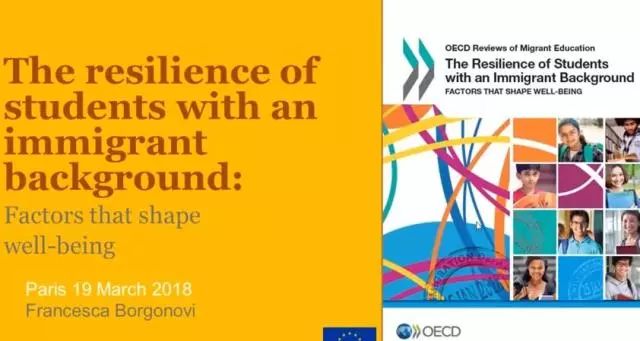
* Note: resilience is defined in this report as a "resilience" that includes tolerance to adversity, moderation, and psychological stress resistance.
Immigrants to Australia and New Zealand are better able to adapt.
According to the report, immigrant children in Australia, Canada and New Zealand often have a greater sense of belonging to schools.
Immigrant children in Australia, in particular, report that they are 24% less likely to be alienated from their schools than local children.
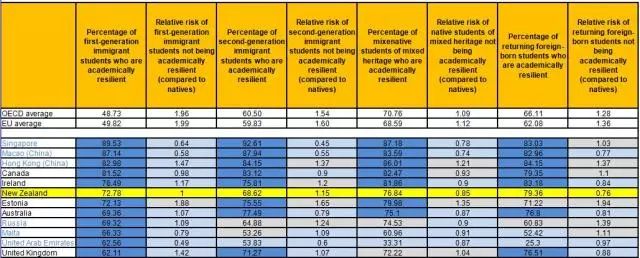
And in the table, "the degree to which immigrant students are bullied compared to local students," we can see that, on average, immigrant students in OECD countries are more likely to be bullied than local students.
In several countries, however, there are "negative numbers" in which immigrant students experience less bullying on campus than local students: new Zealand (- 7 per cent), Australia (- 7 per cent), The United States (- 4%) and Canada (- 3%).
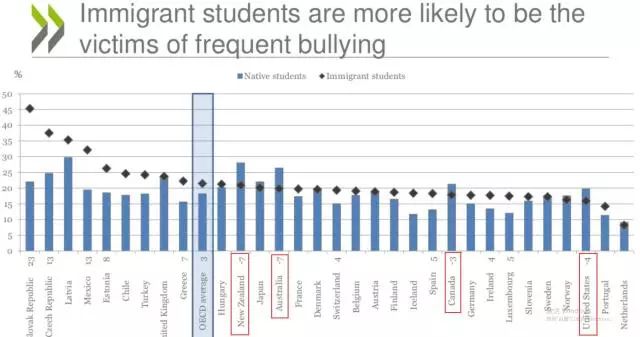
In the form entitled "migrant students think they are being treated unfairly by teachers", we also found that only two countries have experienced "negative numbers", that is, local students find teachers unfair more than immigrant students. They are New Zealand (- 5) and Australia (- 2).
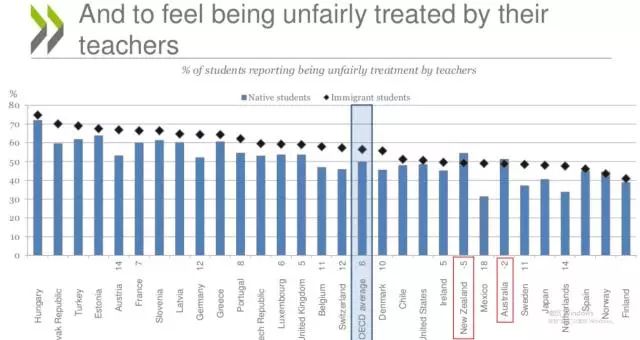
In terms of academic adaptation, immigrant children in Singapore, Canada, New Zealand and Australia also outperformed other countries.
As we can see, in the column "academic adaptation rates for first-generation immigrant students," New Zealand ranks sixth at 72%, which means that 72% of all immigrants in New Zealand are able to adapt to local campuses. That was second only to Singapore, China, Macau and Hong Kong, Canada and Ireland, well above the OECD average of 48.73 percent.
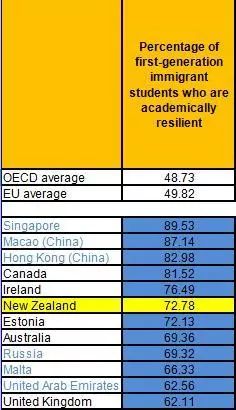
In terms of academic standards, the proportion of immigrant and local students in New Zealand who reach the academic baseline is roughly equal, about 75%, behind Canada and Ireland and well above the OECD average.
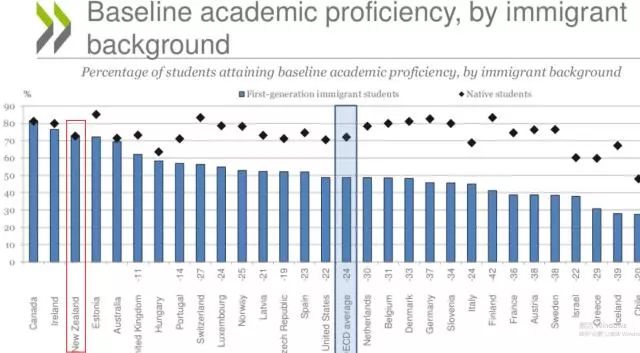
And what is a little surprising is that New Zealand, which has always been regarded as a lazy and easy place to live, is not weak in its pursuit of success, with nearly 85% of its students having a strong motivation for success. Similar to Australia in the top 3.
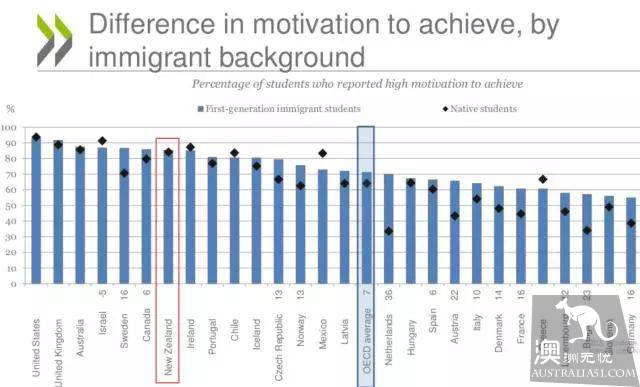
Chinese immigrant students have an advantage
The report also points to significant differences in learning performance among children from different countries of origin.
In Australia, for example, immigrant children from India, the Philippines and China perform significantly better than Australian-born local students.

Also immigrant, children from England, New Zealand, Scotland and Vietnam performed worse than native Australian children.

In addition, according to a study conducted last year by an Australian education institute, it was found that children who did not speak English when they grew up were often better at spelling than local students when they emigrated to some English-speaking countries.

According to the OECD report, Australia should be one of the best immigration options for Chinese families, according to Ken Cruickshank, a professor of education at the University of Sydney. He also noted that the age at which students emigrated was not related to their academic achievements:

Research has shown that children`s age is not important, it is the level of education they received in their mother tongue. For example, those with refugee backgrounds, those who have had little education, even those who have emigrated, will be less than the average. "
New Zealand`s education obviously lags behind Australia?
However, from the OECD report, we still see a worrying point:
According to the report, children from South Africa who emigrated to Australia had significantly better academic performance than those who emigrated to New Zealand.

And from the OECD`s data retrieval, we also found some surprising facts:
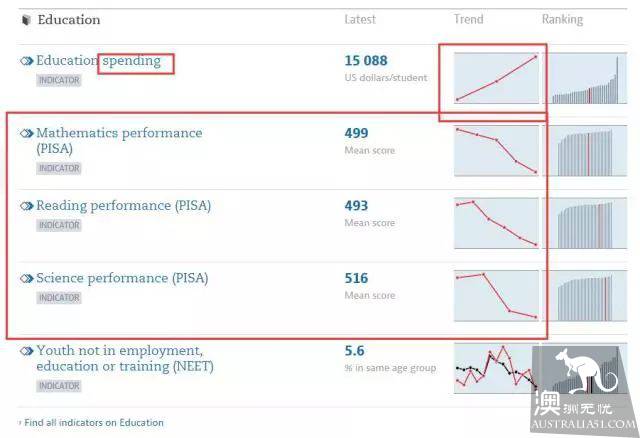
Although spending on education has been rising, New Zealand students` performance in math, reading and science has been declining from 2007 until 2015, according to the OECD.
At the same time, the growing shortage of teachers in New Zealand is a source of concern for parents.
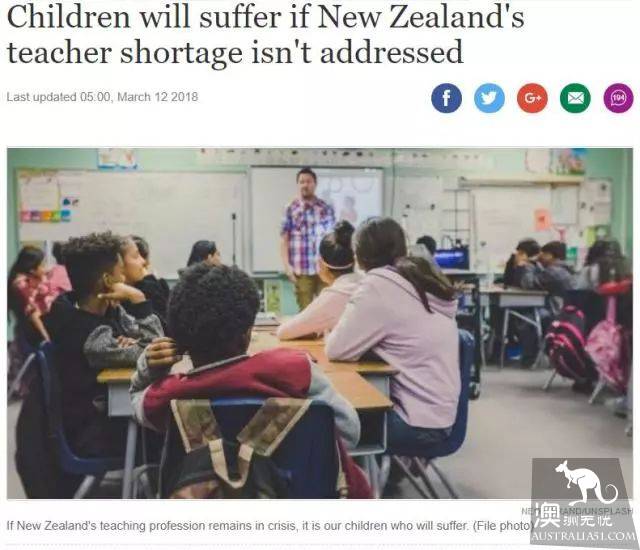
Will you emigrate your children to Australia or New Zealand? Tell me about your considerations.

